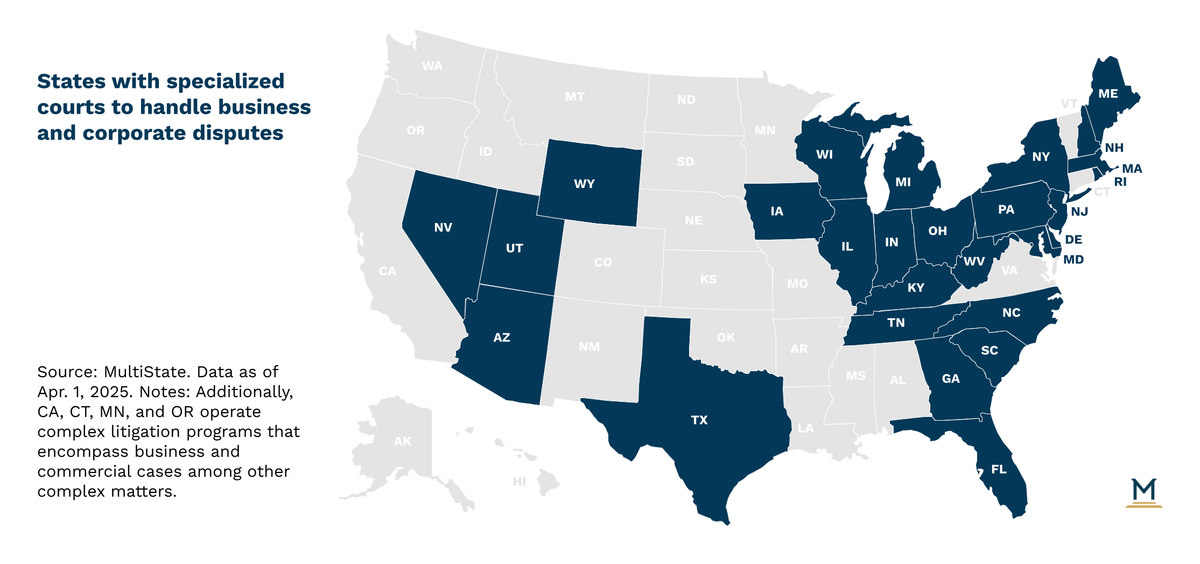
Supreme Court 2025: Five Major Decisions Reshaping State Policy Nationwide
July 15, 2025 | Sandy Dornsife
April 4, 2025 | Bill Kramer

Key Takeaways:
Delaware lawmakers moved quickly to protect the state’s status as the “Incorporation Capital of the World.” Delaware’s business-friendly legal environment has attracted 1.6 million companies to incorporate in the state, including two-thirds of the Fortune 500. Particularly enticing for these companies is Delaware’s well-established corporate law and the Delaware Court of Chancery, the oldest business court in America, which specializes in corporate legal matters.
Delaware Court of Chancery uses experienced judges (instead of juries) to efficiently sort through corporate legal disputes. But this predictability was disrupted recently after a Delaware Chancery judge invalidated Elon Musk’s $55 billion compensation package from Tesla. The case hinged on Musk’s status as a controlling shareholder in Tesla, leading to a potential conflict of interest with the compensation committee (which included Musk’s divorce attorney) that granted him the windfall.
Other states are salivating at the potential to poach Delaware’s status as the corporate world’s favorite state. Last year, Texas launched a new system of business courts designed to handle complex business disputes that was enacted by lawmakers in 2023 (TX HB 19). Similarly, Utah lawmakers established a Business and Chancery Court through 2023 legislation (UT HB 216). The new court became operational last year. Nevada also wants in on the action. Lawmakers introduced a resolution (NV AJR 8) for a constitutional amendment establishing a dedicated statewide business court in Nevada. Currently, only Clark and Washoe counties operate dedicated business dockets in the state. These efforts are already paying dividends, as Elon Musk has reincorporated the companies he controls out of Delaware — Tesla and SpaceX are now incorporated in Texas and Neuralink has incorporated in Nevada.

The Delaware Chancery decision is particularly important for controlling shareholders, e.g. an individual who owns enough shares to exert significant influence over the company’s decisions and direction. Founders who take their companies public often fall into this category, including Meta’s Mark Zuckerberg. The Facebook founder was said to be exploring moving his $1.45 trillion company out of Delaware after the Chancery Court’s decision found in favor of ordinary shareholders over Tesla’s controlling shareholder Musk.
Last week, Delaware Gov. Matt Meyer (D) signed a bill (DE SB 21) giving controlling shareholders more protections under Delaware corporate law. The bill is a direct response to the Chancery Court’s ruling and Delaware policymakers hope it’s enough to stem the talk of a corporate exodus.

July 15, 2025 | Sandy Dornsife

June 17, 2025 | Sandy Dornsife

May 15, 2025 | Sandy Dornsife